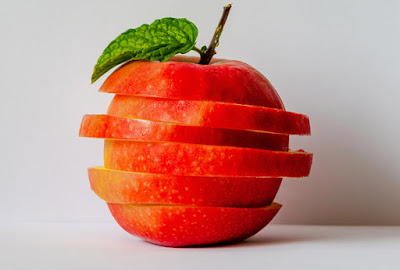Monday, November 11, 2019
Unsatisfying Fruit
by Marsha
Fruit that Leaves you Unsatisfied
The prevailing assumption today is that people are much smarter and more advanced now than all previous generations. Yes, technology has advanced to an amazing degree, and medicine has made great strides in finding out how our bodies work and how to keep them healthy, but does that automatically mean we are smarter? Some would even contend that we are better, or more virtuous than our ancestors.
Despite the advances mentioned above, I think a case can be made that we are virtually the same as all generations that have gone before us, and that we keep falling for the same temptations that tripped them up. It’s easy to run through the stories in the Bible of characters who failed, sometimes spectacularly, and think that we would not have made the same mistakes. If we slow down and look carefully, we will see that we are just the same.
The story of Adam and Eve is familiar to us, but perhaps too familiar to have much impact on how we think about ourselves. Try to imagine what it would be like to live in Eden. It’s almost beyond our comprehension to think of a place with jaw-dropping beauty, a perfect climate, no biting insects, no dangerous reptiles or predators of any kind, no thorns or brambles – just peace and beauty as far as the eye could see. We don’t know his exact age, but Adam was handsome, young, healthy and strong…no allergies, no vision problems or malfunctions in any of his systems. He had the companionship of all the creatures in the world, and none of them wanted to hurt him. Despite this abundance, God saw that he needed a being like, yet unlike, himself to make paradise complete.
God created Eve to fill that void. Like Adam, she was created in perfect health, was beautiful and possessed qualities that complimented Adam’s. We cannot even imagine a relationship of such perfect harmony. They enjoyed each other’s company, worked together harmoniously and never argued. Wouldn’t you give anything to live in a world like this? All they had was one simple rule. Out of all of creation, they had only one limitation – don’t eat of the fruit of the tree in the middle of the garden. How much simpler could it be?
Here is where we begin to see how much we are like these first two humans. All of us have at least ONE thing in our lives to which we know God has said “no.” It may be a relationship that is forbidden, or a heart attitude like pride, laziness, selfishness or greed. It may be an activity that is not inherently bad, like movies or the internet, but we have taken it in the wrong direction, a direction that we know does not honor God. Why couldn’t Adam and Eve have just directed their attention to the abundance of everything else around them that was NOT off-limits? Why can’t we do the same? It seems that the forbidden things call loudly to us, sometimes in every waking moment. What drives us to focus so much on the things we can’t do or can’t have?
At least part of the reason for our focus on the forbidden is that we start to believe lies about ourselves and God. We convince ourselves that if we just had that thing (for argument’s sake, we’ll assume there is only one forbidden thing we desire), our lives would be so much better, or perhaps even perfect. We fantasize about how possessing this “thing” would enrich our experience. The thing/person/relationship appears to be a neutral entity and we cannot imagine why God would deny us this innocent enjoyment. Remember the original limitation? How could a simple fruit be a bad thing? We never expect that there will be difficulties if we get our heart’s desire because we wrongly assume that our fantasies about the future are accurate.
Then we begin to build a case against a God who would prevent us from this harmless “happiness” that is just outside of our reach. Surely God doesn’t understand us or know the deepest parts of our hearts, or He would change his mind. Perhaps He understands how much we want this wonderful thing but doesn’t care? He is either clueless at best or unfeeling and remote from our pain at worst. Who would want to obey or love a God like that? We tend to forget that Jesus came specifically to experience the human condition with all its hurts and temptations. He does understand and is the one we should run to. He was the only one who has ever successfully focused His affections on God instead of His desires.
As we build our case against honoring God’s “no,” we tell ourselves that since we want something so benign, we are justified in ignoring God’s command. The consequences won’t be that bad. Maybe God won’t even notice, just like we assume He hasn’t noticed or listened to our pleas for this thing. If He’s not powerful enough to give us what we want, maybe He’s not powerful enough to follow through with consequences either. Maybe He’s lying to us about the severity of the consequences because we have already questioned His motives and His reliability.
The escape God has provided us from this trap is to focus on the blessings of our relationship with Him, made possible through our relationship with Jesus. The joy of walking “in the cool of the day” (Genesis 3) with Him is more satisfying and more lasting than the brief taste of a fruit that soon becomes bitter. If we train our eyes to look to Him always for satisfaction, we can learn to be satisfied with the Living Water that quenches the thirst and the Bread of Life that satisfies our deepest hunger.
